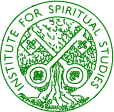
|
|
The Anglican Communion:
|
Seminar delivered by Professor Jane Shaw on August 23, 2006On August 23rd, Rev Professor Jane Shaw of Oxford, UK, gave an animated, wide-ranging paper to the ISS about some current issues facing the Anglican Communion. She contrasted the decentralized growth of Anglican missions in the American colonies before 1783 with the more authoritarian structures begun by CMS and SPG mission agencies in the British colonies in Africa in the following century. In the Australian, New Zealand and Canadian colonies, Jane Shaw noted the work of the SPG, SPCK, etc, and how the Anglicans had been a quasi-official or official religion for a time in the nineteenth century. Shaw went on to describe how the first Lambeth conference was held after an 1867 request by Canadian bishops to discuss common problems. It has been until now a meeting, not a council, with no legally binding deliberations, but rather discussions. Shaw then asked us what Anglicans had in common. A variety of audience responses were elicited to add to the 2005 Utah clergy ones: a dynamic tradition in which scripture, tradition and reason were linked; a thinking, questioning church; a social justice tradition; respect for conscience and a dispersed authority. She remarked how culture shapes our identity, claiming that though there is a church/state connection in the UK, they are "more relaxed" about religion there than are the more "serious" Americans. In the third part of the talk, Shaw looked at the contemporary Anglican communion. She talked of "Commonalities" and "differences", the local factors and the global ones. Two issues faced by the Lambeth Conference recently have been polygamy (1988) and homosexuality (1998). She even referred to a "trade-off" between a reduction of debts of some churches for a favourable vote on the homosexuality issue. While she discussed the above divisive issues, she claimed that "biblical Authority" was the real issue in both cases, and that "general tribalism" (or local uncompromising schools of thought) were weakening the overall unity of thought and purpose. As for the future, Shaw foresaw seven possible likelihoods for the Anglican Communion: 1) its actual breakup; 2) internally divided dioceses; 3) an increase in 'tribalism'; 4) liberals and catholics opposed to well-organized conservative evangelicals; 5) competing and fragmented ecclesial bodies; 6) more fragile missionary organizations; 7) vulnerable churches suffering. So we can ask ourselves: do we want the church to be inclusive or exclusive? Do we desire more emphasis on historical faith continuity or 'doctrinally pure' like-minded evangelicals? Do we want more attempts at unity or increased provincial autonomy? Finally, in question time, Prof Shaw asserted that during the last decade there had been a fundamental change in Anglican Polity, with, for example, no talk of the work of the Holy Spirit in the much-discussed Windsor report, but rather a growing intolerance within different groups. She urged us to be secure in who we are, so that we can converse with others of different views in a genuine, open dialogue to promote a healthy, loving relationship in order that security can allow us to shift what we stand for. In the week of the protracted election proceedings for the new Melbourne Archbishop, this talk – quite a tour de force – was indeed apposite.
This site is hosted by St Peter's Eastern Hill,
Melbourne, Australia. |